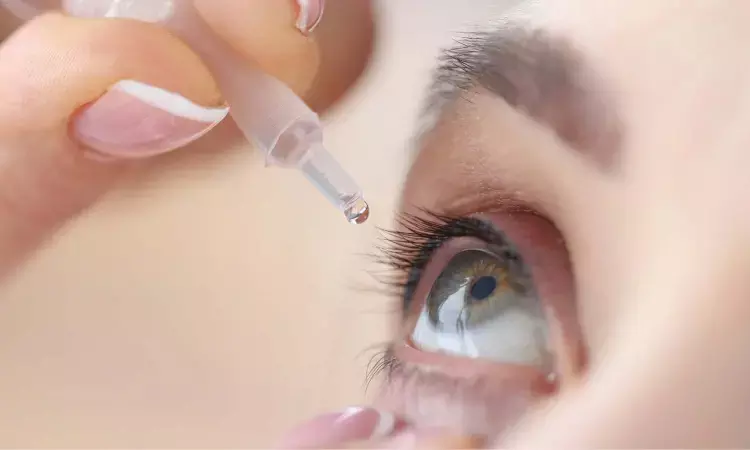- Home
- Medical news & Guidelines
- Anesthesiology
- Cardiology and CTVS
- Critical Care
- Dentistry
- Dermatology
- Diabetes and Endocrinology
- ENT
- Gastroenterology
- Medicine
- Nephrology
- Neurology
- Obstretics-Gynaecology
- Oncology
- Ophthalmology
- Orthopaedics
- Pediatrics-Neonatology
- Psychiatry
- Pulmonology
- Radiology
- Surgery
- Urology
- Laboratory Medicine
- Diet
- Nursing
- Paramedical
- Physiotherapy
- Health news
- Fact Check
- Bone Health Fact Check
- Brain Health Fact Check
- Cancer Related Fact Check
- Child Care Fact Check
- Dental and oral health fact check
- Diabetes and metabolic health fact check
- Diet and Nutrition Fact Check
- Eye and ENT Care Fact Check
- Fitness fact check
- Gut health fact check
- Heart health fact check
- Kidney health fact check
- Medical education fact check
- Men's health fact check
- Respiratory fact check
- Skin and hair care fact check
- Vaccine and Immunization fact check
- Women's health fact check
- AYUSH
- State News
- Andaman and Nicobar Islands
- Andhra Pradesh
- Arunachal Pradesh
- Assam
- Bihar
- Chandigarh
- Chattisgarh
- Dadra and Nagar Haveli
- Daman and Diu
- Delhi
- Goa
- Gujarat
- Haryana
- Himachal Pradesh
- Jammu & Kashmir
- Jharkhand
- Karnataka
- Kerala
- Ladakh
- Lakshadweep
- Madhya Pradesh
- Maharashtra
- Manipur
- Meghalaya
- Mizoram
- Nagaland
- Odisha
- Puducherry
- Punjab
- Rajasthan
- Sikkim
- Tamil Nadu
- Telangana
- Tripura
- Uttar Pradesh
- Uttrakhand
- West Bengal
- Medical Education
- Industry
Eye drops could replace eye injections for retinal vein occlusion in coming times

USA: Eye drops developed by Columbia University researchers could be a more effective-and comfortable-therapy for retinal vein occlusion (RVO). Retinal vein occlusion is a common eye disease currently treated with injections into the eye.
Retinal vein occlusion (RVO), an eye disease that affects up to 2% of people over age 40, occurs when a vein in the eye’s retina becomes blocked, leading to swelling in the eye, inflammation, damage to the retina, and vision loss.
Standard therapy involves injecting into the eye a vascular endothelial growth factor inhibitor (anti-VEGF) that reduces swelling. The therapy can improve vision but patients with significant retinal damage due to impaired blood flow often have poor outcomes.
“Anti-VEGF therapy has helped a lot of people with RVO, but the fear factor-having to get a needle in the eye-causes many people to delay treatment, which can lead to retinal damage,” says Carol M. Troy, MD, PhD, professor of pathology & cell biology and of neurology at Columbia University Vagelos College of Physicians and Surgeons. “There’s an opportunity to help more people with this disease that is a leading cause of blindness worldwide.”
The study found that an experimental eye drop treatment was twice as effective as the standard injection therapy at reducing swelling and improving blood flow within the retina of mice with RVO. The eye drops also prevented neurons (photoreceptors) in the retina from deteriorating and preserved visual function over time, whereas the standard injections had no effect on either.
Eye drops target ‘death enzyme’
The eye drops contain an experimental drug that blocks caspase-9, an enzyme that triggers cell death, and was found by Troy’s lab to be overactive in blood vessels injured by RVO.
“We think the eye drops improve the health of blood vessels in the retina, which then decreases the toxic signaling that damages the retina’s neurons and leads to vision loss,” says Maria I. Avrutsky, PhD, the study’s first author who conducted the research as a postdoc in the Troy lab.
Future studies are aimed at preparing to test the eye drops in human clinical trials and identifying additional therapeutic targets.
“Finding the root cause of RVO is the holy grail, but if we can at least provide better symptomatic relief that doesn’t distress patients, it would be a really good start,” Troy says.
Reference:
Maria I. Avrutsky, Claire W. Chen, Jacqueline M. Lawson, Scott J. Snipas, Guy S. Salvesen and Carol M. Troy, Caspase-9 inhibition confers stronger neuronal and vascular protection compared to VEGF neutralization in a mouse model of retinal vein occlusion, https://doi.org/10.3389/fnins.2023.1209527.
Dr Kamal Kant Kohli-MBBS, DTCD- a chest specialist with more than 30 years of practice and a flair for writing clinical articles, Dr Kamal Kant Kohli joined Medical Dialogues as a Chief Editor of Medical News. Besides writing articles, as an editor, he proofreads and verifies all the medical content published on Medical Dialogues including those coming from journals, studies,medical conferences,guidelines etc. Email: drkohli@medicaldialogues.in. Contact no. 011-43720751


